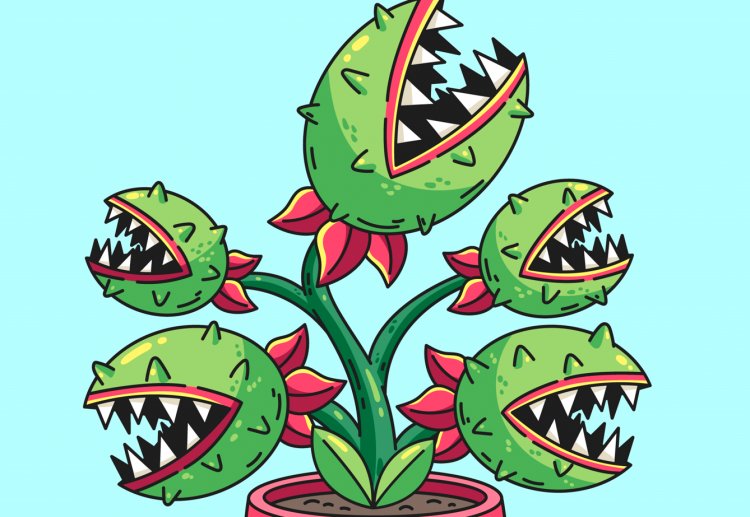Botanophobia: The Hidden Fear of the Plant Kingdom
Phobias are intense, irrational fears of specific objects or situations, and botanophobia is one such phobia that involves an overwhelming fear of plants. While this phobia might seem unusual to many, it can cause significant distress and impairment in the lives of those who suffer from it.

What is Botanophobia?
Botanophobia is a specific phobia characterized by an irrational and persistent fear of plants. This fear can range from mild discomfort to severe anxiety and panic attacks when exposed to plants. People with botanophobia might fear all plants, or their fear might be specific to certain types, such as flowers, trees, or even houseplants.
Symptoms of Botanophobia
The symptoms of botanophobia can manifest both physically and psychologically. Common symptoms include:
Physical Symptoms
- Increased heart rate
- Sweating
- Trembling
- Shortness of breath
- Dizziness
- Nausea
- Chest pain
Psychological Symptoms
- Intense fear or anxiety at the sight or thought of plants
- A strong desire to avoid places where plants might be present
- Feelings of panic or terror
- Overwhelming distress that disrupts daily life
Causes of Botanophobia
Understanding the causes of botanophobia involves exploring a combination of factors. These can include:
Traumatic Experiences
A negative experience involving plants, such as being stung by a plant with thorns, developing a severe allergic reaction, or having a frightening encounter with a plant, can trigger botanophobia.
Learned Behavior
Witnessing a family member or close friend react fearfully to plants can instill a similar fear, especially in children who are highly impressionable.
Genetics and Biology
A predisposition to anxiety disorders and phobias can be inherited, making some individuals more susceptible to developing botanophobia.
Cultural Influences
In some cultures, plants may be associated with superstitions or negative beliefs, contributing to the development of fear.
Impact on Daily Life
The impact of botanophobia on an individual's life can be profound. Some of the challenges faced by those with botanophobia include:
Social Isolation
Avoiding social gatherings in parks, gardens, or homes with houseplants can lead to feelings of isolation and loneliness.
Professional Limitations
Jobs that require being outdoors or interacting with plants, such as gardening, landscaping, or even certain scientific fields, may be off-limits.
Restricted Activities
Activities such as hiking, picnicking, and visiting botanical gardens become sources of anxiety rather than enjoyment.
Daily Inconveniences
Everyday tasks like walking through a park, shopping at a florist, or even entering buildings with indoor plants can be fraught with fear.
Treatment Options
Effective treatment is available for those struggling with botanophobia. The following are some common approaches:
Cognitive-Behavioral Therapy (CBT)
CBT helps individuals identify and challenge irrational thoughts related to plants, replacing them with more realistic and positive thoughts. This therapy also includes exposure exercises to gradually reduce fear.
Exposure Therapy
This method involves gradual, controlled exposure to plants in a safe environment, starting with less intimidating plants and progressing to more challenging situations.
Medication
Anti-anxiety medications or antidepressants may be prescribed to help manage severe anxiety symptoms, though they are usually used in conjunction with therapy.
Relaxation Techniques
Techniques such as deep breathing exercises, progressive muscle relaxation, and mindfulness meditation can help reduce anxiety and improve coping skills.
Support Groups
Joining a support group can provide a sense of community and shared understanding, which can be very beneficial in managing phobias.
In conclusion, Botanophobia, while less commonly discussed than other phobias, is a real and debilitating condition for those who suffer from it. The intense fear of plants can significantly restrict a person’s lifestyle and limit their experiences. However, with a combination of therapeutic interventions and support, individuals with botanophobia can work towards overcoming their fear and leading more fulfilling lives. Understanding, compassion, and appropriate treatment are key to helping those affected by botanophobia reclaim their sense of normalcy and enjoyment of the world around them.
Disclaimer: The information provided in this article is for educational purposes only and should not be considered medical advice. If you have any health concerns or are experiencing symptoms, it is important to consult with a healthcare professional, such as a doctor or clinic, for proper diagnosis and treatment. Always seek the advice of your doctor or other qualified health provider with any questions you may have regarding a medical condition. Do not disregard professional medical advice or delay in seeking it because of something you have read in this article.
#botanophobia #phobias #mentalhealth #anxiety #therapy #CognitiveBehavioralTherapy #CBT #ExposureTherapy #mentalhealthawareness #plants
What's Your Reaction?





















